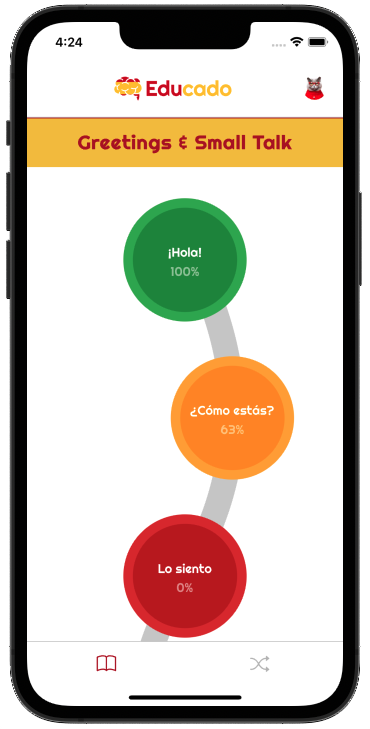Conjugation of regular verbs in the present tense in Dutch
In Dutch, verbs in the present tense are conjugated according to the subject of the sentence. This means that the verb form changes depending on whether the subject is "I," "you," "he/she/it," "we," "you (plural)," or "they." To understand this better, let's look at the conjugation of the verb "drinken" (to drink) as an example.
Conjugation of "drinken" in the Present Tense
| Subject Pronoun | Conjugation of "drinken" | English Translation |
|---|---|---|
| ik (I) | drink | I drink |
| jij/je (you, informal) | drinkt | you drink |
| u (you, formal) | drinkt | you drink |
| hij/zij/het (he/she/it) | drinkt | he/she/it drinks |
| wij/we (we) | drinken | we drink |
| jullie (you all) | drinken | you all drink |
| zij/ze (they) | drinken | they drink |
Rules for Conjugating Regular Verbs
-
Infinitive Form: Start with the infinitive form of the verb. For "drinken," the infinitive is "drinken."
-
Stem Form: To find the stem, remove the "-en" ending from the infinitive. For "drinken," the stem is "drink."
-
Conjugation Pattern:
- First Person Singular (ik): The verb takes the stem form: "ik drink" (I drink).
- Second Person Singular (jij/je, u): Add "-t" to the stem: "jij drinkt" (you drink), "u drinkt" (you drink, formal).
- Third Person Singular (hij/zij/het): Also add "-t" to the stem: "hij drinkt" (he drinks), "zij drinkt" (she drinks), "het drinkt" (it drinks).
- First Person Plural (wij/we): Use the infinitive form: "wij drinken" (we drink).
- Second Person Plural (jullie): Use the infinitive form: "jullie drinken" (you all drink).
- Third Person Plural (zij/ze): Use the infinitive form: "zij drinken" (they drink).
Additional Notes
- Inversion with "jij/je": When the subject pronoun "jij/je" comes after the verb (such as in questions or when emphasizing a verb), the "-t" ending is dropped. For example, "Drink jij?" (Do you drink?).
- Formal and Informal Address: "Jij/je" is used for informal address, while "u" is formal. Both take the "-t" ending in the present tense, except in questions where "jij" or "je" follows the verb.
- Consistency in Plurals: For all plural subjects ("wij," "jullie," "zij"), the verb stays in its infinitive form. This makes the present tense relatively straightforward once the pattern is understood.
By following these rules, you can accurately conjugate regular Dutch verbs in the present tense.
Terms of service |
Privacy statement |
E-mail us at: info@educado.app
© Copyright Educado 2024 - All rights reserved
Educado | Opaallaan 1180 | 2132LN | Hoofddorp | Netherlands
© Copyright Educado 2024 - All rights reserved
Educado | Opaallaan 1180 | 2132LN | Hoofddorp | Netherlands


